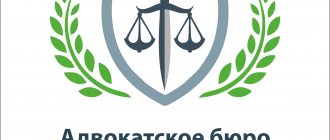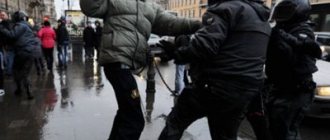ST 360 of the Criminal Code of the Russian Federation.
1. An attack on a representative of a foreign state or an employee of an international organization enjoying international protection, as well as on official or residential premises or vehicles of persons enjoying international protection, is punishable by imprisonment for a term of two to six years.
2. The same act, committed for the purpose of provoking war or complicating international relations, is punishable by imprisonment for a term of five to ten years.
Commentary to Art. 360 Criminal Code
1. The victim is a representative of a foreign state or an employee of an international organization enjoying international protection.
The concept of an internationally protected person is contained in the Convention on the Prevention and Punishment of Crimes against Internationally Protected Persons, including Diplomatic Agents, of 14 December 1973.
A representative of a foreign state enjoying international protection is a diplomatic representative of a foreign state, a consular official.
An employee of an international organization who enjoys international protection is the Secretary-General and certain other employees of the UN, UN specialized agencies, the Council of Europe, the Eurasian Economic Community, the Shanghai Cooperation Organization and other organizations.
The subject of the crime is the official or residential premises or vehicles of persons enjoying international protection.
2. The objective side is characterized by an attack, i.e. open or hidden unexpected aggressive and violent influence on objects or victims specified by law. An attack does not include murder and infliction of grievous harm to the health of victims, who must independently qualify under the relevant articles of the Criminal Code in conjunction with the article under comment.
3. The act is considered completed from the moment of the attack, regardless of the consequences.
Second commentary to Art. 360 of the Criminal Code of the Russian Federation
1. The object of the crime is the safety of persons or institutions enjoying international protection. The subject of the crime is the property of these persons, as well as the property of the relevant states and international institutions (office and residential premises, vehicles, etc.).
2. The objective side of this crime, provided for in Part 1 of Art. 360 of the Criminal Code, is expressed in the following actions: 1) an attack on a representative of a foreign state or an employee of an international organization enjoying international protection and 2) an attack on office or residential premises or a vehicle of these persons.
3. The subject of the crime is a person who has reached 16 years of age.
4. The subjective side is characterized by direct intent.
5. Part 2 art. 360 of the Criminal Code of the Russian Federation provides for increased liability for an act provided for in Part 1 of this article, committed with the aim of provoking war or complicating international relations.
6. The subjective side of qualified personnel presupposes the presence of a special goal - provoking war or complicating international relations (severance or deterioration of diplomatic relations, termination of treaties, etc.).
Article 360. Attack on persons or institutions enjoying international protection
Appeal ruling of the Supreme Court of the Russian Federation dated July 12, 2017 N 205-APU17-21 According to the note to Art. 205.3 of the Criminal Code of the Russian Federation, a person who has committed a crime under Art. 205.3 of the Criminal Code of the Russian Federation, is exempt from criminal liability if it informed the authorities about the completion of training, knowingly for the student, conducted for the purpose of carrying out terrorist activities or committing one of the crimes provided for in Art. Art. 205.1, 206, 208, 211, 277, 278, 279, 360 and 361 of the Criminal Code of the Russian Federation, contributed to the disclosure of the crime committed or the identification of other persons who underwent such training, carried out, organized or financed such training, as well as the places where it was carried out and if in it actions do not contain any other corpus delicti.
Resolution of the Presidium of the Supreme Court of the Russian Federation dated May 29, 2019 N 21-P19pr
According to Part 3.2 of Art. According to the Criminal Code of the Russian Federation (as amended by Federal Law No. 186-FZ of July 3, 2022), the time a person is held in custody is counted toward the term of imprisonment at the rate of one day for one day in relation to those convicted of particularly dangerous recidivism of crimes; convicts for whom the death penalty by way of pardon has been replaced by life imprisonment or imprisonment for a term of twenty-five years; convicted of crimes under Art. Art. 205 - 205.5, part 3, 4 art. 206, part 4 art. 211, part 2, 3 art. 228, art. Art. 228.1, 229, 275, 276, 361 of the Criminal Code of the Russian Federation, and crimes associated with the implementation of terrorist activities, provided for in Art. Art. 277 - 279 and 360 of the Criminal Code of the Russian Federation.
Appeal ruling of the Judicial Collegium for Military Personnel Cases of the Supreme Court of the Russian Federation dated June 27, 2019 N 201-APU19-18
Thus, participation in the activities of a terrorist organization is understood as the commission by a person of deliberate actions related to the continuation or resumption of the activities of this organization, and participation in a terrorist community is understood as the inclusion of a person in a stable group of two or more persons with the intention of participating in terrorist activities or preparation or commission of one or more crimes provided for in Articles 205.1, 205.2, 206, 208, 211, 220, 221, 277, 278, 279, 360 and 361 of the Criminal Code of the Russian Federation, or other crimes for the purpose of promoting, justifying and supporting terrorism, including Art. 205.5 of the Criminal Code of the Russian Federation is not specified, as well as participation in the preparation for or in the commission of such crimes, as well as the performance by a person of functional duties to ensure the activities of such a community. When a participant in a terrorist organization commits a specific crime, his actions are subject to qualification according to the totality of crimes provided for in Part 2 of Art. 205.5 of the Criminal Code of the Russian Federation and the corresponding article of the Special Part of the Criminal Code of the Russian Federation, which was established in this criminal case.
Appeal ruling of the Judicial Collegium for Military Personnel Cases of the Supreme Court of the Russian Federation dated 09/03/2019 N 205-APU19-27
Within the meaning of Art. 205.1 of the Criminal Code of the Russian Federation, the financing of terrorism should be recognized, along with the provision of financial services, the provision or collection of not only money, but also material resources with the understanding that they are intended to finance the organization, preparation or commission of at least one of the crimes provided for in Articles 205, 205.1, 205.2, 205.3, 205.4, 205.5, 206, 208, 211, 220, 221, 277, 278, 279 and 360 of the Criminal Code of the Russian Federation, or for financing or other material support of a person for the purpose of committing at least one of these crimes, or to support an organized group, illegal armed group, criminal community (criminal organization) created or being created to commit at least one of these crimes.
Appeal ruling of the Judicial Collegium for Military Personnel Cases of the Supreme Court of the Russian Federation dated September 25, 2019 N 201-APU19-44
Within the meaning of Art. 205.1 of the Criminal Code of the Russian Federation, the financing of terrorism should be recognized, along with the provision of financial services, the provision or collection of not only money, but also material resources with the understanding that they are intended to finance the organization, preparation or commission of at least one of the crimes provided for in Articles 205, 205.1, 205.2, 205.3, 205.4, 205.5, 206, 208, 211, 220, 221, 277, 278, 279 and 360 of the Criminal Code of the Russian Federation, or for financing or other material support of a person for the purpose of committing at least one of these crimes, or to support an organized group, illegal armed group, criminal community (criminal organization) created or being created to commit at least one of these crimes.
Appeal ruling of the Judicial Collegium for Military Personnel Cases of the Supreme Court of the Russian Federation dated September 24, 2019 N 203-APU19-14
According to paragraph 2 of Art. 24 of the Federal Law of March 6, 2006 N 35-FZ “On Countering Terrorism” an organization is recognized as terrorist and is subject to liquidation (its activities are prohibited) by a court decision on the basis of an application from the Prosecutor General of the Russian Federation or a subordinate prosecutor if, on behalf of or in the interests of the organization, the organization, preparation and commission of crimes provided for in Articles 205 - 206, 208, 211, 220, 221, 277 - 280, 282.1 - 282.3, 360 and 361 of the Criminal Code of the Russian Federation are carried out. A court decision to liquidate an organization (ban its activities) applies to regional and other structural divisions of the organization.
Appeal ruling of the Judicial Collegium for Military Personnel Cases of the Supreme Court of the Russian Federation dated October 22, 2019 N 208-APU19-10
In accordance with Art. 205.1 of the Criminal Code of the Russian Federation, the financing of terrorism should be recognized, along with the provision of financial services, the provision or collection of not only money, but also material resources with the understanding that they are intended to finance the organization, preparation or commission of at least one of the crimes provided for in Articles 205, 205.1, 205.2, 205.3, 205.4, 205.5, 206, 208, 211, 220, 221, 277, 278, 279 and 360 of the Criminal Code of the Russian Federation, or for financing or other material support of a person for the purpose of committing at least one of these crimes, or to support an organized group, illegal armed group, criminal community (criminal organization) created or being created to commit at least one of these crimes.
Appeal ruling of the Judicial Collegium for Military Personnel Cases of the Supreme Court of the Russian Federation dated December 5, 2019 N 224-APU19-11
The argument that the case has not established the involvement of Shaykhvaliev, R. and G. in the preparation or commission of one of the crimes provided for in the note to Art. 205.1 of the Criminal Code of the Russian Federation is untenable, since it is decisive for establishing the fact of the commission of a crime under Part 4 of Art. 205.1 of the Criminal Code of the Russian Federation is confirmation by the totality of collected evidence of the convicted person’s awareness that the funds, the collection and transfer of which he organized, are intended to finance the organization, preparation or commission of at least one of the crimes provided for in Articles 205, 205.1, 205.2, 205.3, 205.4, 205.6, 206, 208, 211, 220, 221, 277, 278, 279 and 360 of the Criminal Code of the Russian Federation, or for financing or other material support of a person for the purpose of committing at least one of these crimes, or for providing for an organized group, illegal armed group , a criminal community (criminal organization) created or being created to commit at least one of these crimes.
Determination of the Constitutional Court of the Russian Federation dated March 28, 2017 N 562-O
At the same time, according to part four of article 73 of the Penal Code of the Russian Federation, those convicted of crimes provided for in article 126, parts two and three of article 127.1, articles 205 - 206, 208 - 211, 275, 277 - 279, 281, 282.1, 282.2, 317, part the third article 321 and the second part of article 360 of the Criminal Code of the Russian Federation, those convicted of especially dangerous recidivism of crimes, sentenced to life imprisonment, sentenced to serve imprisonment in prison, convicts for whom the death penalty by way of pardon has been replaced by imprisonment, are sent to serve their sentences in relevant correctional institutions located in places determined by the federal body of the penal system.
Determination of the Constitutional Court of the Russian Federation dated March 28, 2017 N 599-O
At the same time, according to part four of article 73 of the Penal Code of the Russian Federation, those convicted of crimes provided for in article 126, parts two and three of article 127.1, articles 205 - 206, 208 - 211, 275, 277 - 279, 281, 282.1, 282.2, 317, part the third article 321 and the second part of article 360 of the Criminal Code of the Russian Federation, those convicted of especially dangerous recidivism of crimes, sentenced to life imprisonment, sentenced to serve imprisonment in prison, convicts for whom the death penalty by way of pardon has been replaced by imprisonment, are sent to serve their sentences in relevant correctional institutions located in places determined by the federal body of the penal system.
Appeal ruling of the Judicial Collegium for Military Personnel Cases of the Supreme Court of the Russian Federation dated January 23, 2020 N 225-APU19-6
In accordance with Art. 205.1 of the Criminal Code of the Russian Federation, the financing of terrorism should be recognized, along with the provision of financial services, the provision or collection of not only money, but also material resources with the understanding that they are intended to finance the organization, preparation or commission of at least one of the crimes provided for in Articles 205, 205.1, 205.2, 205.3, 205.4, 205.5, 206, 208, 211, 220, 221, 277, 278, 279 and 360 of the Criminal Code of the Russian Federation, or for financing or other material support of a person for the purpose of committing at least one of these crimes, or to support an organized group, illegal armed group, criminal community (criminal organization) created or being created to commit at least one of these crimes.








